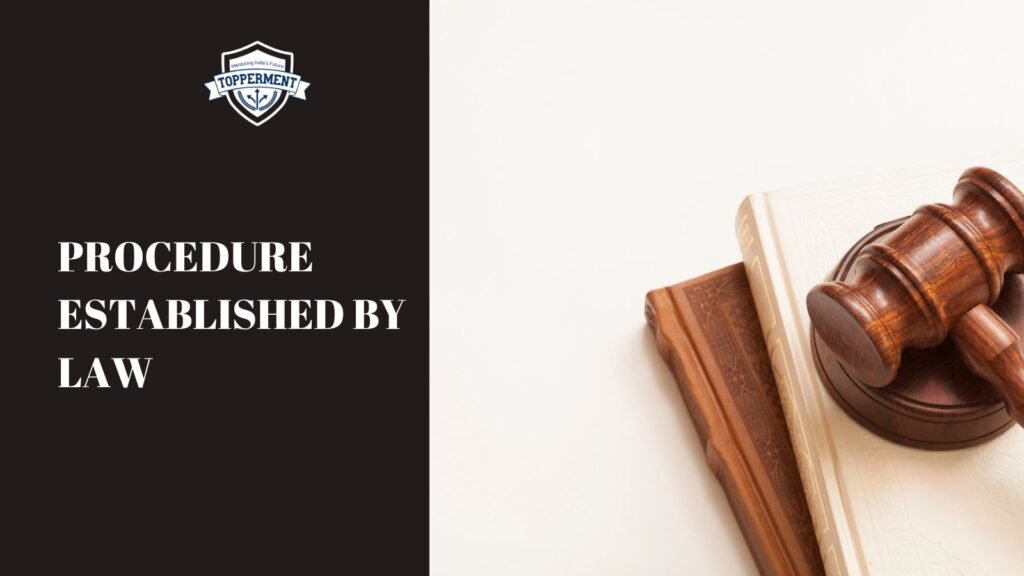Procedure Established by law means that a parliament-approved law would be valid if it had followed a significant procedure. This aspect originates from the British constitution. It is used in Article 21 of the Indian constitution.
The idea indicates that a person might be deprived of his life or personal liberty in accordance with the legal system. The best example of this aspect is Phone tapping violates Article 21 unless it is permitted by the procedure established by law.
The procedure established by law is essential for many reasons:
· Fairness and Justice: Established procedures ensure that legal matters are handled in a fair and just manner, and protect the rights of all parties involved. · Procedures: Helps to safeguard the rights of individuals and groups, such as the right to a fair trial, and the right to due process.
Related Cases
A.K.Gopalan Vs Government Of India(1965)
· In this case, the supreme court declared that if the government takes away an individual’s freedom in accordance with the legal system.
· The court interpreted Article 21 quite literally, ruling that the phrase procedure established by law means that a method established in legislation can revoke the right to life and personal liberty.
A procedure established by law means that a law that has been enacted is valid even if it violates justice. The supreme court emphasized the need for due process of law in order to avert this predicament.
Also Read
- Prospects for SAARC: Strengthening Regional Cooperation | UPSC International Relations
- What Is Purchasing Power Parity(PPP)? | UPSC Economics
Follow Us For More Content On:
https://www.instagram.com/topperment/
Tag:Article 21, Fairness, Government Of India, IAS, IFS, India, IPS, IRS, Justice, Legal System, Personal Liberty, Polity, Procedures, UPSC


